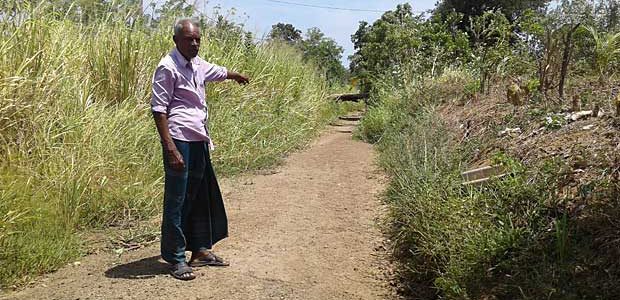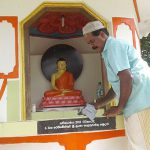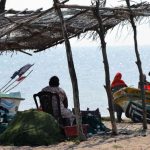More Death Than In War:
In North-Eastern Sri Lankan Village, Disease Follows Drought
When the locals of Morawewa returned to their former homes, formerly fertile land had dried and water was contaminated. Those who cannot afford to buy water risk kidney disease.
The canal beds are cracked and barren, plantings have dried up and the people living in Morawewa are forced to travel miles to find drinking water. It looks like an ordinary case of drought in Sri Lanka but in fact, there are more serious stories behind it.
Before the Sri Lankan civil war this was a prosperous farming community but after violent conflict broke out, locals fled and Morawewa was empty for 22 years. After the war, the village was resettled. In coming back to the area, the resettled people only asked the state to ensure one thing: water.
It would have been better to be killed during the war, than to drink this water and die suffering
“When we left, these lands were fertile,” says J. M. Jayasiri, the head of the Morawewa community development society. “But everything has changed. Wells dried up, houses have been destroyed and elephants have rampaged through the town. So we need to start all over again. To do this, we need water for irrigation and for drinking. That is all we asked for. But even ten years later, we still don’t have it.”
The people of this area also have another big, related issue: the mysterious kidney disease that has plagued many Sri Lankan communities. People believe that the lack of drinking water has a lot to do with this.
“Up until now between 10 and 12 people in Morawewa have died from kidney failure,” says a local W. D. Indrani. “That is more people than were killed by the Tamil Tigers! And the deaths happened in a very short period of time. People who can afford it, will drive to get water. Others will buy from them too. But the people who cannot afford it, must drink the water they can get here. It would have been better to be killed during the war, than to drink this water and die suffering.”
Morawewa’s people decided to help themselves by building a well and a water tank.

“We did this not for ourselves but for our children,” another member of the community development group, R. M. Dharmasiri explained. “We spent a lot of money on the well but this and the tank is not enough to provide water for the whole village. It would be enough if it could just be developed a little bit more. But most of the villagers are poor farmers and we don’t have the money for this.”
“We suffered through a war, elephants attacked us, we have had drought and now we are sick,” local man, U.V. Gunapal, stresses. “But our time is over. And these problems should not be passed on to future generations.”
“It is true that people in this area face an acute shortage of drinking water,”
Morawewa assistant divisional secretary, Sajith Welgama, told The Catamaran. “The well water cannot be used because the water is contaminated. This has caused kidney disease. This is a very tragic situation.”











